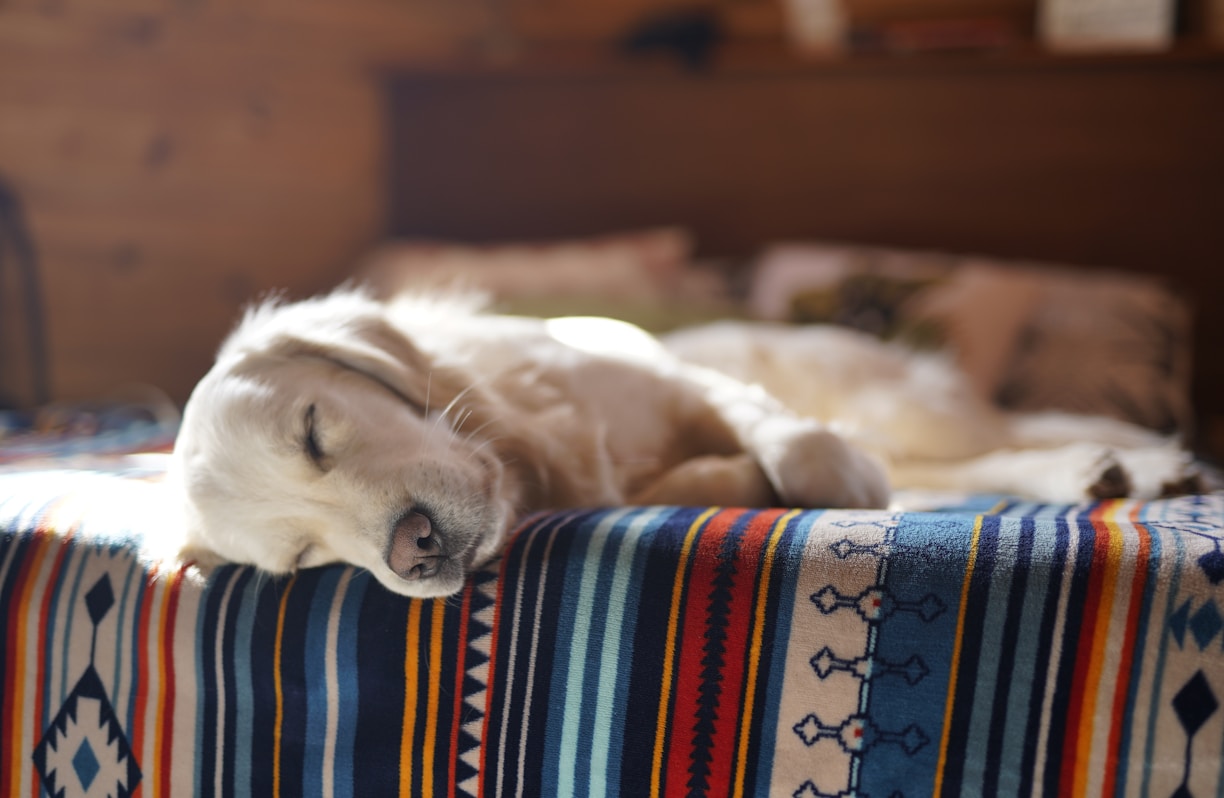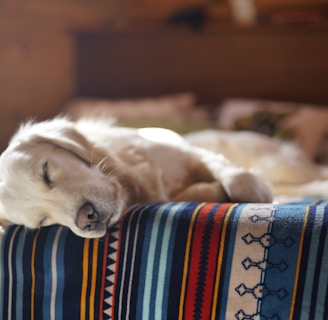How Long Should My Dog Be Sleeping?
Just like humans, dogs require an adequate amount of sleep to maintain their overall health and well-being. However, the duration of sleep can vary depending on factors such as age, breed, and overall health.
DOG HEALTHDOG LIFESTYLE
11/23/20233 min read


Dog Sleep!
As a dog owner, it's important to understand the sleeping patterns of your furry friend. Just like humans, dogs require an adequate amount of sleep to maintain their overall health and well-being. However, the duration of sleep can vary depending on factors such as age, breed, and overall health. In this article, we will explore the recommended sleeping durations for dogs of different ages and provide some tips on how to ensure your dog gets the rest they need.
Sleeping Patterns in Puppies
If you have a new puppy, you may notice that they sleep a lot. This is completely normal and essential for their growth and development. Puppies have a lot of energy, and their bodies need time to rest and recharge. On average, a puppy can sleep anywhere between 16 to 20 hours a day. This may seem like a lot, but it's crucial for their physical and mental development.
It's important to note that puppies have smaller bladders and may need to go outside to relieve themselves during the night. However, try not to disturb their sleep unless necessary. Interrupting their sleep patterns can lead to crankiness and behavioral issues.
Adult Dog Sleeping Habits
As dogs grow older, their sleeping patterns change. Adult dogs generally require less sleep than puppies. On average, adult dogs sleep for about 12 to 14 hours a day. However, this can vary depending on the individual dog, their breed, and their activity level.
Some dogs may require more sleep if they are recovering from an illness or injury. It's important to monitor your dog's sleep patterns and consult with your veterinarian if you notice any significant changes in their sleeping habits.
Senior Dogs and Sleep
Senior dogs, just like senior humans, tend to sleep more than their younger counterparts. As dogs age, they may experience various health issues that can affect their sleep patterns. Arthritis, cognitive decline, and other age-related conditions can cause discomfort and disrupt their sleep.
It's important to provide a comfortable sleeping environment for senior dogs. Investing in a supportive orthopedic bed can help alleviate joint pain and provide better quality sleep. Additionally, regular exercise and mental stimulation during the day can help tire them out and promote better sleep at night.
Creating a Sleep-Friendly Environment
Creating a sleep-friendly environment for your dog is essential to ensure they get the rest they need.
Here are some tips to help you create an optimal sleeping space:
Choose a comfortable bed: Invest in a high-quality bed that provides adequate support for your dog's body. Orthopedic beds are particularly beneficial for older dogs or those with joint issues.
Find a quiet location: Place your dog's bed in a quiet area of your home, away from any sources of noise or distractions. This will help create a peaceful environment for them to sleep.
Regulate the temperature: Dogs are sensitive to temperature changes, so make sure the room they sleep in is neither too hot nor too cold. Provide blankets or a fan, depending on the weather, to keep them comfortable.
Establish a routine: Dogs thrive on routine, so try to establish a consistent sleep schedule. This will help them anticipate and prepare for sleep, making it easier for them to relax and fall asleep.
Limit screen time: Just like humans, dogs can be affected by screens and electronic devices. Avoid exposing your dog to bright screens before bedtime, as this can disrupt their sleep patterns.
Signs of Sleep Disturbances
While it's normal for dogs to sleep for extended periods, it's essential to be aware of any signs of sleep disturbances. If you notice any of the following signs, it may indicate that your dog is not getting the quality sleep they need:
Excessive daytime sleepiness
Restlessness or tossing and turning during sleep
Snoring or heavy breathing during sleep
Difficulty falling asleep or staying asleep
Changes in appetite or weight loss
Increased irritability or aggression
If you observe any of these signs, it's crucial to consult with your veterinarian. They can help determine the underlying cause of the sleep disturbances and recommend appropriate treatment or lifestyle adjustments to improve your dog's sleep quality.
In Conclusion
Sleep is a vital aspect of your dog's overall health and well-being. The duration of sleep required can vary depending on their age, breed, and health condition. Puppies need more sleep than adult dogs, while senior dogs may require additional rest due to age-related issues. By creating a sleep-friendly environment and being attentive to any signs of sleep disturbances, you can ensure that your furry friend gets the rest they need to live a happy and healthy life.
Subscribe to our newsletter
HEALTHY DOGGOS 2023 COPYRIGHT
